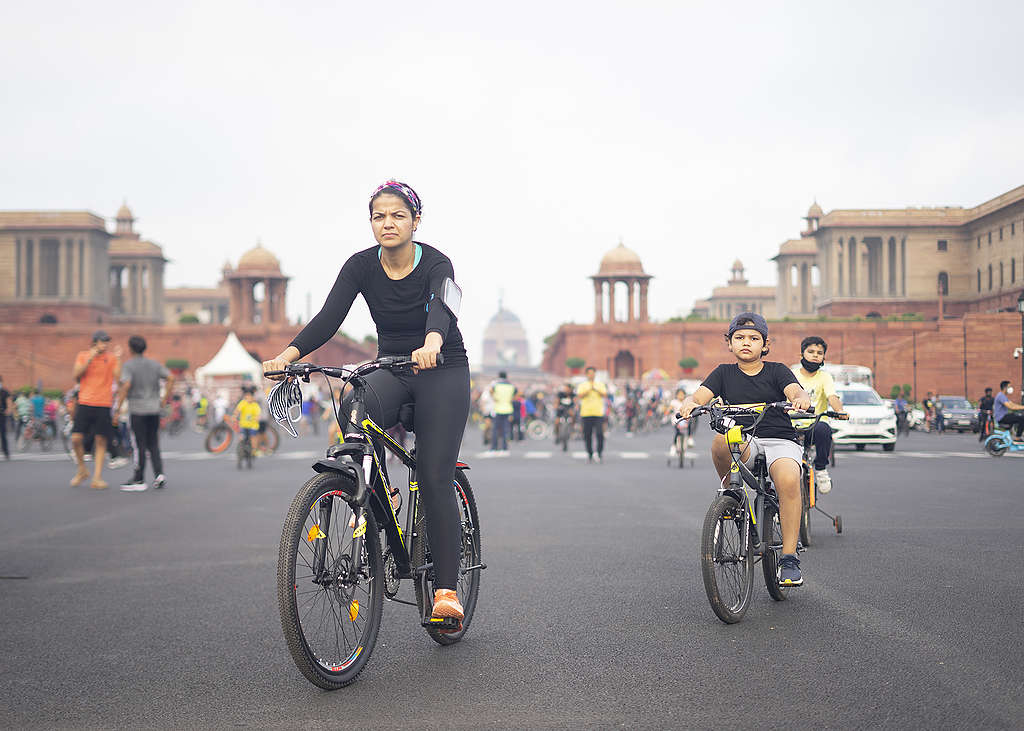In response, Abhishek Pratap, Sr Energy Campaigner, Greenpeace India, said: “The IEA report yet again warns us against an impending climate crisis we are headed towards. Fossil fuel based energy is not only a threat to the ecosystem but also has failed to deliver. It is very clear that renewable energy is a key solution for the power crisis as well as sustainable development and the government needs to step up their ambition on renewable energy by making the national target of 20% renewable energy generation by the year 2020. The world needs to shift to clean energy at the earliest to achieve the 2 degree goal.”
Greenpeace points to several immediate opportunities where the Indian governments and corporations can show they will heed the IEA’s call: India needs to ensure proper implementation of the differential Renewable Purchase Obligation (RPO) mechanism. This would address the equity within states. The Greenpeace report “Powering Ahead on Renewables: Leaders and Laggards” (1) ranks performance of all the states on renewable energy supply and calls for revision of Renewable Purchase Obligation (RPO) mechanism based on the principle of equity and responsibility.
The IEA’s report also warns that the energy industry itself cannot escape from climate change. For example, water supplies are under increasing stress due to climate change, while greater coal mining and burning competes for those supplies, often in the same regions. (2) Reliance on coal creates energy and water insecurity, as well as financial risks for the energy sector. The IEA has previously warned that in order to stay within 2 degrees Celsius of warming, the majority of the world’s proven coal, oil and gas reserves must be left in the ground.
In January, Greenpeace International highlighted 14 coal, oil and gas projects – including in China, Australia and the Arctic – that could instead lock the world onto a 6 degrees trajectory. These projects must be abandoned to avoid catastrophic climate change (3).
Notes:
1: Powering Ahead on Renewables: Leaders and Laggards: http://www.greenpeace.org/india/Global/india/report/2013/powering-ahead-with-renewables.pdf
2: Coal Power Plants and water use in Maharashtra: http://www.greenpeace.org/india/en/publications/Coal-Power-Plants-and-water-use-in-Maharashtra/
3: Point of No Return report: http://www.greenpeace.org/international/en/publications/Campaign-reports/Climate-Reports/Point-of-No-Return/

Donate today or consider remembering Greenpeace in your Will.
